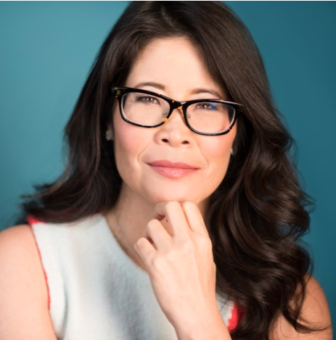“The Astonishing Effects of Exercise on the Brain” is the subject of a talk Feb. 27 by a neuroscientist who delivered the second-most viewed TEDTalk of 2018.

Photo from WendySuzuki.com
Neuroscientist Wendy Suzuki will talk about exercise and brain health at Maplewood at Darien on Feb. 27.
Dr. Wendy Suzuki, a professor of neural science and psychology at New York University’s Center for Neural Science will deliver an interactive presentation at Maplewood at Darien.
Suzuki’s talk will explain “the science behind why physical exercise (i.e., moving your body) is the most transformative thing that you can do for your brain today,” according to an announcement from Maplewood Senior Living.
The public is invited to hear Suzuki speak starting at 4:30 p.m., Feb. 27 at Maplewood at Darien, 599 Post Road. Suzuki is working with Maplewood Senior Living on programs to help keep seniors’ brains healthy.
To RSVP to attend Dr. Suzuki’s presentation or learn more about the brain-health lifestyle offered at Maplewood at Darien, please contact us at 203.202.9883 or visit www.MaplewoodatDarien.com.
From the announcement:
Through her extensive research, Dr. Suzuki has concluded that physical exercise helps to strengthen key areas of the brain that are most susceptible to both aging and Alzheimer’s disease, making it our best hope in addressing the epidemic of Alzheimer’s disease in this country.
These conclusions led her to develop BrainBody, an easy to use platform that quantifies the brain enhancing effects of exercise and provides individualized exercise prescriptions that help protect the brain from aging and neurodegenerative disease states.
“Dr. Suzuki’s breakthrough BrainBody program is a game-changer for many adults who want to improve brain function and increase longevity,” said Gregory D. Smith, president and CEO of Inspīr, a part of Maplewood Senior Living.
“We are thrilled to have Dr. Suzuki present the program to our residents. We have opened our doors to the community so they may benefit from the BrainBody program and the teachings of Dr. Suzuki.”
Dr. Suzuki’s work is scientifically proven to have a positive impact on whole-person wellness and longevity. Her research spans over 25 years studying memory and brain plasticity.
See Also:
Not every study agrees, but there are enough that these reliable sources are saying this about exercise and dementia risk:
- “The Right Kind of Exercise May Boost Memory and Lower Dementia Risk“ (New York Times, Nov. 16, 2019) “Being physically fit may sharpen the memory and lower our risk of dementia, even if we do not start exercising until we are middle-aged or older, according to two stirring new studies of the interplay between exercise, aging, aerobic fitness and forgetting.”
- “Alzheimer’s disease: Can exercise prevent memory loss?” (Mayo Clinic website, April 20, 2019) “Studies show that people who are physically active are less likely to experience a decline in their mental function, have a lowered risk of developing Alzheimer’s disease, and possibly have improved thinking among people with vascular cognitive impairment.”
- “What Science Tells Us About Preventing Dementia” (Wall Street Journal, Nov. 17, 2019) “There are no instant, miracle cures. But recent studies suggest we have more control over our cognitive health than we might think. It just takes some effort.”
Through her career she has conducted extensive work studying the formation and retention of new long-term memories. Her most recent research focuses on understanding the role aerobic exercise plays in improving learning, memory and higher cognitive abilities.
“Exercise is like a super-charged 401K for your brain, only better, because of its immediate, long-lasting and protective effects on the brain,” said Dr. Suzuki. “The research shows that as we age, it is imperative to stay in motion and exercise to maintain cognitive function.”
Dr. Suzuki is taking her research to the next level and focusing specifically on the aging population.
Through an exclusive relationship with Maplewood Senior Living, she will be conducting pilot programs at two Maplewood Senior Living communities, including Maplewood at Darien, where she will enlist a group of residents to utilize her BrainBody platform.
Through their participation she will be able to quantify the brain-enhancing effects that each exercise program has for them, and be able to provide individualized exercise prescriptions that maximally protect the brain from aging and neurodegenerative disease states.
Maplewood Senior Living is committed to providing residents with a brain-healthy lifestyle. From daily programs to keep residents in motion naturally and purposefully, to nourishing dining options that include brain-healthy foods, every aspect of the care experience at Maplewood Senior Living is designed to help residents maximize their brain function.
To learn more about the brain-health lifestyle offered at Maplewood at Darien, please contact us at 203.202.9883 or visit www.MaplewoodatDarien.com.
About Maplewood Senior Living
Maplewood Senior Living offering a broad range of premier services, amenities and care to its residents. Maplewood Senior Living, based in Westport, owns and operates 16 upscale senior living communities in Connecticut, Massachusetts, New Jersey, New York and Ohio.
There is an Upper East Side location in Manhattan, within the company’s newest brand, Inspīr. For more information, please call 203-557-4777 or visit www.maplewoodseniorliving.com.
About Wendy Suzuki
Dr. Wendy A. Suzuki is a professor of neural science and psychology in the Center for Neural Science at New York University. In 2018, Dr. Suzuki’s 2018 TEDWomen talk (attached to this article) was the No. 2 most viewed TED talk of the year.
Dr. Suzuki’s major research interest continues to be brain plasticity. She is best known for her extensive work studying areas in the brain critical for our ability to form and retain new long-term memories.
More recently her work has focused on understanding how aerobic exercise can be used to improve learning, memory and higher cognitive abilities in humans.
Dr. Suzuki received her undergraduate degree in physiology and human anatomy at the University of California, Berkeley in 1987 studying with Prof. Marion C. Diamond, a leader in the field of brain plasticity.
She went on to earn her Ph.D. in Neuroscience from U.C. San Diego in 1993 and completed a post-doctoral fellowship at the National Institutes of Health before accepting her faculty position at New York University in 1998.

